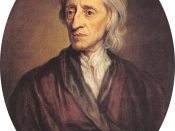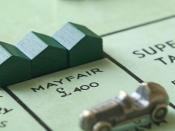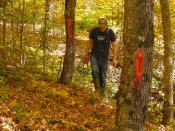What is private property? Private property is the ownership of the property by an individual. As referred by John Locke, ?The labour of his body, and the work of his hands, we may say, are properly his? (section 27, p. 19): the property becomes private when a man adds his labor or his work to it. This implication of his labor gives him the right of the property; in other words labor makes it ?Private Property?.
Locke uses his labor theory to connect the dots between common and private property. Man is able to identify property ? private, general idea is man has private use as well as removal rights of the property, by applying his labor. Since the movement of the body is the individual?s own, as his body, whenever he uses it, to develop the common world - the resulting yield belongs to him.
The similar theory of investment of labor can be extended to control over the surface of the earth as well, on Locke?s view.
Individuals who pour themselves into the land - improving its productivity by spending their own time and effort on its cultivation - acquire a property interest in the result (section 32, p. 21). The cultivate ground is worth more than the uncultivated ground or land, precisely for the same reason that he has provided his labor in cultivating it; so still if the uncultivated land was in custody of common by all, the cultivated land is his. This private use of the property can maintain for ever, so long as there is ?enough, and as good? (section 27, p.19) left for commons with the good sense to do the same.
Moreover, physical labor or exercitation of his mind, to generate fruits, is then his own property. Locke alleged...


